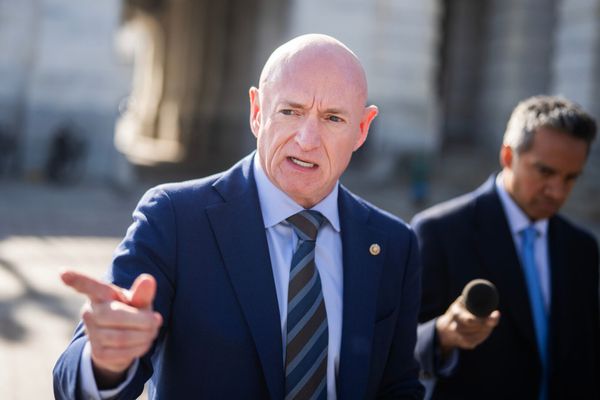
It’s been a while since a TV show came along that people leaned into losing their minds about, but finally, and after a year of otherwise mediocre programming, we have one. I Love LA, the HBO comedy set among wannabe gen Z influencers, is only halfway through its eight-episode run, but it is already comfortably the best show of the year. And more importantly, it has triggered all the signifiers of event TV: obsessive repeat viewings, line-by-line coverage, big platform profiles of its stars and weekly recaps on Vulture, New York magazine’s website. Within days of each episode airing, people have transcribed and uploaded the entire script, which – with the best will in the world – no one’s doing for Riot Women.
The surprising thing about this is not the fact that it’s the first show by Rachel Sennott, the show’s 30-year-old creator and star, or that the action takes place in a tiny world in east LA, but that content about influencers can be watchable at all. To date, millennial and older writers have tended to use social media as a lumbering plot device – oh my God, something’s gone “viral!” – or as a stand-in for the collapse of all known standards. You probably haven’t watched these because nobody did, but take your pick from: HBO’s one-season disaster The Girls on the Bus, in which an old-media reporter covers a US election race only to find that influencers – those pesky kids! – have stolen her patch. Or the equally horrific Netflix flop Girlboss, loosely based on the memoirs of Sophia Amoruso, the early influencer, and which not even a cameo by Cole Escola could save. Or Flack, the deathly Anna Paquin-fronted show about publicists trying to manage their clients’ social media, and an early red flag for which was the use of the word “maven” in the show’s publicity.
Sennott’s elevator pitch for I Love LA was “Entourage for internet girls”, and unlike those other shows, she’s writing from inside the house: the series is based on her move from New York to LA in 2020 and her years of being young, broke and striving in a lonely and competitive city.
As such, I Love LA is as current as Girls was in 2012 and tells the story of Maia, a new-hire entertainment manager trying to wrangle her old pal and only client, Tallulah, into taking off as an influencer, while hanging out with Charlie, an uber-gay stylist, and the nepo baby Alani, played deliciously by real nepo baby True Whitaker (daughter of Forest). The success of the show isn’t only about youth. At the risk of sounding like Tina Brown’s Substack, while there is definite buzz around the age of the show’s creator and actors and the fact that it feels like the first really authentic gen Z comedy, the show is as much about sensibility. I would say I Love LA has more in common with Platonic, the hit show about middle age on Apple TV+, than with much younger pieces. (There’s a great joke about Cara Delevingne in the Platonic pilot that could easily sit in the new HBO show.)
And I Love LA has almost certainly benefited from the sheer amount of garbage on TV at the moment. That one with Claire Danes and Matthew Rhys, in which her chin wobble carries most of the drama and both their managers should’ve had a word about lighting (Rhys looks like the waxwork of a deposed dictator.) Or the new one with David Duchovny – if you got further than 10 minutes in, I commend you. Reviews for I Love LA haven’t been universally good; plenty of people point out that it takes a minute to find its footing. But it is so fresh and real that it makes even recent hits like Hacks look stagey and sitcom.
Ultimately, it’s a question of confidence, and the show assumes you will catch the references to Diddy, understand why Kramer vs Kramer is funny, field the drive-by on the LA fires, and appreciate the comedic truth of, “What am I supposed to do, wait in line like an assistant at UTA?” The show occupies a world that the creators also live in and don’t feel inclined to explain. If you don’t get the line “I just wasted $612 on a straight fire victim queer-baiter,” then I Love LA invites you, politely, to return to the tepid pleasures of shows about women who hate their husbands and wonder if they’re living the wrong life (almost certainly, yes).
Emma Brockes is a Guardian columnist
Do you have an opinion on the issues raised in this article? If you would like to submit a response of up to 300 words by email to be considered for publication in our letters section, please click here.







